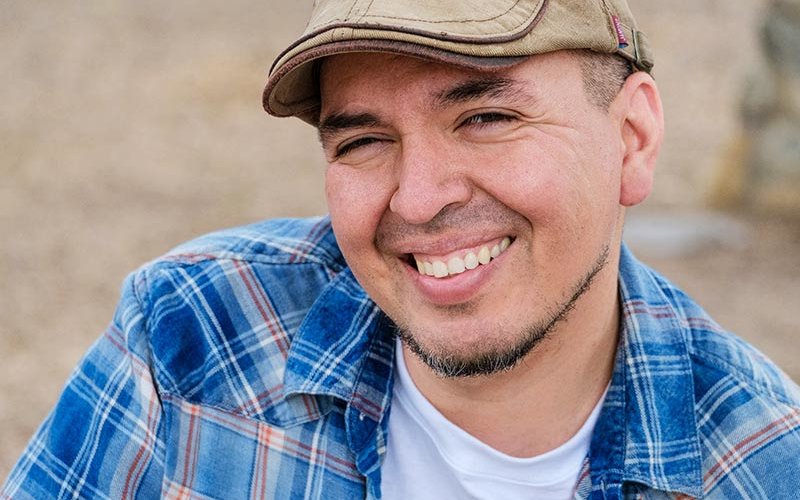
Omar Chavez lost focus many times on the path to earning his bachelor’s degree in linguistics in May. Now, as Cal State Fullerton’s first graduate of the Project Rebound program, he plans to share his experience to motivate other formerly incarcerated students.
Dozens of short-term jobs, trips to Mexico and expensive hobbies distracted Chavez from his studies at Chaffey College. When he transferred to Cal State Fullerton, he was overloaded with too many courses and a lack of focus and financial ability to keep up with tuition.
The opportunity to make quick money, even though it was illegal, was too tempting to resist, he says. “And once I started, I didn’t know how to get out of it,” he says of the few times he smuggled drugs into the country. After taking chances a few times, there was a rush, he admits. Then, on Super Bowl weekend of 2012, he was caught with methamphetamines in his car at the Mexicali border — a federal crime. He received a 46-month prison sentence.
“Being arrested was a blessing in disguise because I needed the time to reassess and re-evaluate,” Chavez says. “I learned that because of my education, more was expected of me.” Such expectations and pressure provided the motivation he lacked.
“Inside” prison, Chavez says he discovered education was the key to changing his life. He took Latin and business classes. He learned horticulture and time management. He began to enjoy reading. He taught ESL, or English-as-a-Second-Language classes.
Feeling focused, he began to plan for a future.
“Outside,” Chavez worked several years to pay off his University fees and debt while rising through the ranks to a trainer’s position at the Cheesecake Factory. He re-enrolled last spring, confident he could handle five courses in one final semester. His goal to rebound at Cal State Fullerton got “real” when he learned jobs higher up the corporate ladder required a bachelor’s degree.
He found support from CSUF’s faculty, staff and students from similar backgrounds with referrals to the Male Success Initiative, a pilot program to improve student persistence, increase graduation rates for underrepresented students, as well as Hermanos Unidos, a student-led nonprofit dedicated to the advancement of Chicano and Latino men breaking stereotypes through education, community service and social networking.
In CSUF’s Project Rebound, he met a mentor, Romarilyn Ralston. She too had been in prison. She’d also earned two degrees and is now the coordinator of the year-old campus program that offers tuition support, textbook stipends, meal vouchers, advising and mentoring to formerly incarcerated students.
“I believe our rebound scholars get a sense of finding a space where they can use their incarceration experience to benefit others. They also find an academic space where they thought they could never be included, and the opportunity to have a dream come true, to be a college graduate,” Ralston says.
“We make a connection to our scholars because we have similar lived experiences. They know they can openly ask me about things that affect their lives on- and off-campus and get some coaching about how to work through those things.”
In the fall, five students will join the seven already enrolled in Project Rebound. Through outreach efforts touting the educational successes of Chavez, Ralston and others, the program has been introduced to 300 potential students, said Brady Heiner, the program’s director.
Hundreds have graduated from the program since it started at San Francisco State in 1967, and only 3 percent have returned to prison. Last year the program expanded to CSUF and seven other CSU campuses.
The more his mentors and peers in Project Rebound held him accountable, the more he appreciated his education, Chavez says.
“If you’re doing everything right and your actions are aligned with your values, everything goes up — everything improves,” he says. “Now I want to give back to others.”
The future, now in focus, could include graduate school, says Chavez, and he’d like to work for a Project Rebound program on another CSU campus.
“I feel I must inform others about what I’ve learned,” he says. “That’s more my calling now. And, for me, sharing my experience with others would be a lot more rewarding than the corporate job I originally envisioned.”